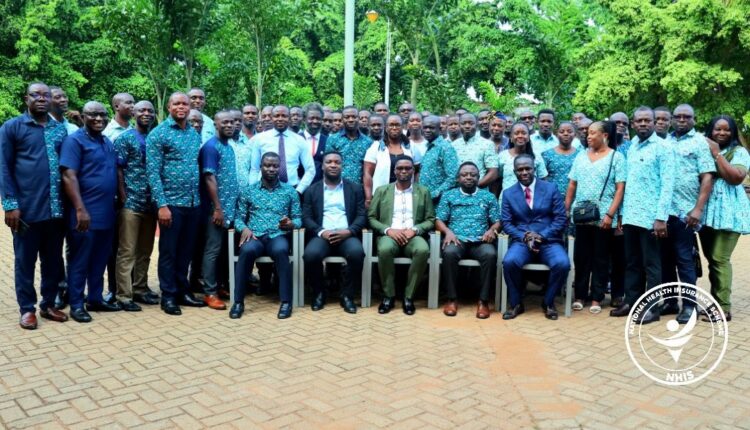The National Health Insurance Authority (NHIA) has extended its nationwide capacity-building programme on the updated Financial Manual to the Bono Region.
The session, held in Sunyani, brought together staff from the Bono, Bono East and Ahafo Regions, comprising regional and district accountants, finance officers, and some key administrative staff.
The nationwide exercise, spearheaded by the Finance and Investments Division, aims to strengthen financial management practices, enhance accountability, and ensure uniform implementation of financial procedures across the Authority.
Opening the session, the Acting Bono Regional Director, Mr. Isaac Badu Amponsah, underscored the importance of the training, noting that it demonstrates the Authority’s resolve to deepen transparency, reinforce financial accountability and enhance internal control systems.
He noted that the training provides an invaluable opportunity for staff to deepen their understanding of revised financial processes, strengthen compliance and enhance the efficiency of financial management systems across all operational levels.
Mr. Badu urged participants to actively engage, share experiences and contribute meaningfully to the discussions.
He highlighted the critical role of Finance staff in sustaining NHIA’s operations, saying, “We know that without your financial support, our organisation would not thrive in the direction we all seek. Your participation here will help improve the activities the Authority continues to embark on.”
He expressed confidence that the knowledge and skills gained would support the NHIA’s mission to deliver a more robust and sustainable financial system for all Ghanaians.
Presenting an overview of the updated Financial Manual, Senior Manager for Financial Reporting, Mr. Albert Nyarko Antwi, explained that the manual provides a systematic approach to implementing policies, plans and financial routines within the NHIA. He noted that the 2008 edition had become outdated due to evolving accounting practices and the shift from manual to automated systems.
“Over the years, financial procedures and systems have evolved, and the transition from manual to automated accounting processes has transformed how financial operations are conducted. This necessitated a comprehensive review of the 2008 Financial Manual to align with present-day practices,” he said.
Mr. Antwi added that the updated manual aligns with the Government of Ghana Accounting Manual for Covered Entities and the International Public Sector Accounting Standards (IPSAS), ensuring consistency with national and professional regulations. He emphasized that compliance is mandatory for all staff, with sanctions for non-compliance as outlined in the Conditions of Service and Act 852.
He further presented on the Financial Management Structure of the Finance Division, covering staffing arrangements, ethical standards, conflict of interest, and disclosure requirements. He highlighted the roles of the Board, Chief Executive Officer, and the Deputy Chief Executive (Finance & Investment) in ensuring prudent financial administration, urging staff to uphold integrity and confidentiality.
In another session, Mr. Antwi briefed participants on the Accounting System and Chart of Accounts. He explained that the NHIA has adopted the Ghana Integrated Financial Management Information System (GIFMIS), an automated platform that integrates budget execution, procurement, inventory, accounts, cash management and human resource administration.
He added that the GIFMIS Chart of Accounts—structured into ten segments with a 74-character code—promotes accountability, enables regional and divisional analysis, and supports the Authority’s transition toward advanced accrual-based accounting.
In a technical presentation, Senior Accounts Officer at the Financial Accounting Directorate, Mr. Isaac Commey, discussed Accounting Policies and General Principles. He noted that the NHIA applies consistent accounting policies in line with IPSAS, the Public Financial Management Act (Act 921) and the NHIA Act (Act 852), to maintain transparency and comparability in financial reporting.
He outlined key accounting assumptions such as the accrual basis, going concern and matching principle, which ensure that the Authority’s financial statements present a true and fair view of its operations. He added that adherence to IPSAS enhances the NHIA’s credibility and compliance with international accounting standards.
Participants engaged in interactive discussions, sought clarification on technical areas of the manual and shared practical experiences from their districts.


Comments are closed.